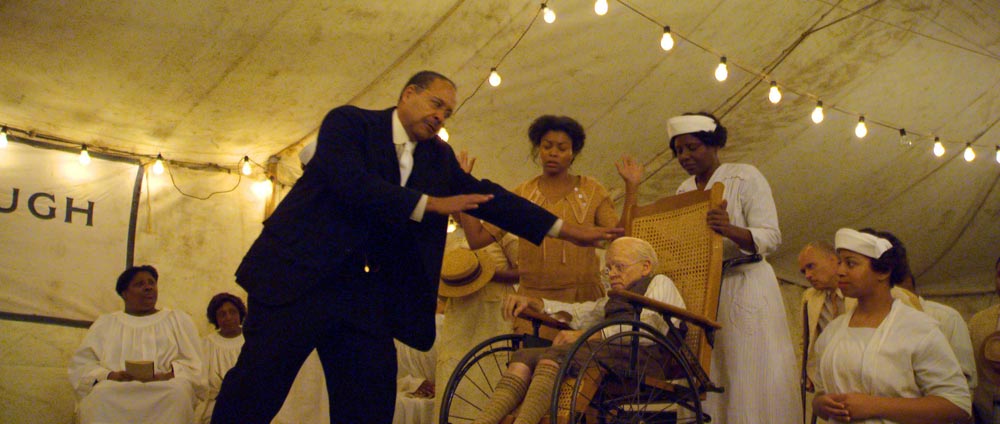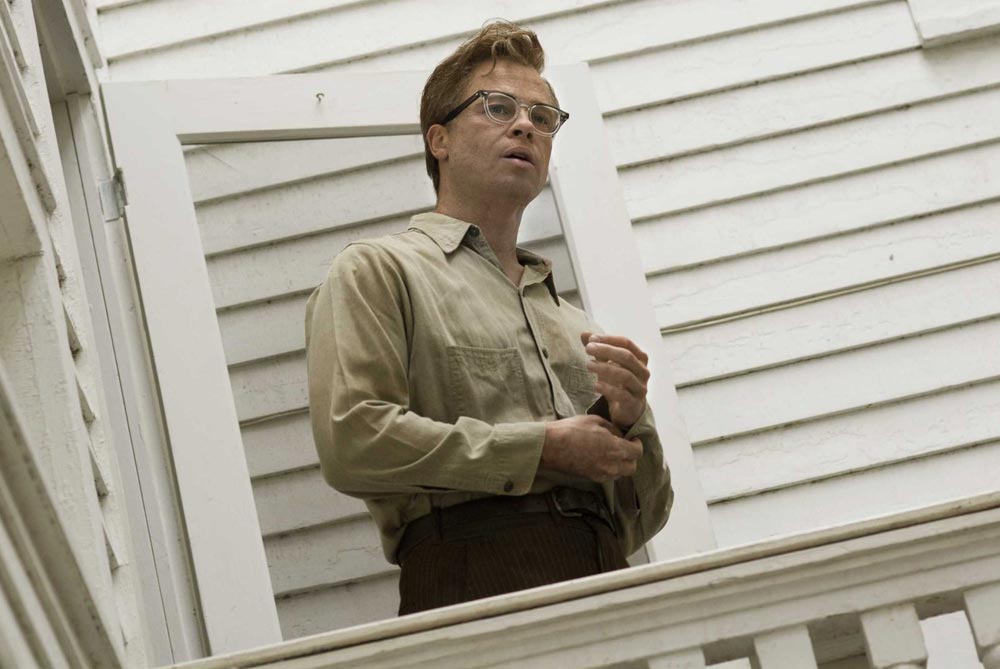
It’s no secret that The Curious Case of Benjamin Button is loosely based on a short story by F. Scott Fitzgerald, a great American writer who worked and published steadily throughout the 1920s and ‘30s. The 1921 short story, of the same title, deals simply with a character that ages in reverse – Button screenwriter Eric Roth extended the slender short story to deal with the entirety of Benjamin Button’s 80-year life.
Apparently someone in Italy is unfamiliar with this. Adriana Pichini filed a lawsuit against in Italy alleging that the film is based on a story she wrote fifteen years ago. Her story was registered for copyright in 1994. Reuters has more details.
“The Curious Case of Benjamin Button” got a little stranger Friday after an attorney representing an Italian office worker filed legal papers alleging that the screenplay was based on a story she wrote in 1994.
The David Fincher film, nominated for 13 Oscars, features Brad Pitt in the role of Benjamin Button, a man who ages backward. It was inspired by — but not based on — a 1921 short story by F. Scott Fitzgerald.
Adriana Pichini, a Roman office worker, said the film seems to be based on a story she wrote 15 years ago called “Il ritorno di Arthur all’innocenza” (Arthur’s Return to Innocence). The story was officially registered with the proper Italian copyright authorities in 1994 and even sent to publishers in the U.S., but was never published.
According to Gianni Massaro, Pichini’s lawyer, a file was opened with the Rome Tribunal Court, which means a judge will watch the film and read the story. If the judge determines there are enough similarities to warrant an investigation, the court will launch one.
Massaro, a fixture in the Italian cinema industry and a former president of the Italian audiovisual association ANICA, said in an interview that he is not sure if Pichini will seek financial damages against Fincher, screenwriter Eric Roth and the film’s producers.
“At this point it’s still a matter of principle,” Massaro said. “What happens next will depend on what the judge rules.”
It is not clear what authority an Italian court would have in this case, though Massaro noted that the film’s producers, Hollywood studios Paramount Pictures and Warner Bros. Pictures, both have Italian operations.
No timetable has been set for the judge’s viewing. The rest of Italy will be able to see the film when it goes into nationwide release February 13.
From Reuters/Hollywood Reporter
What goes unspoken is the idea that there could be plagiarism involved for Ms. Pichini herself. What if her story plagiarized the original 1921 Fitzgerald story? It seems like a silly lawsuit to me, but if the Italian courts are hearing it, maybe there’s something there. Hopefully, the court will throw it out.
Note by Celebitchy: What about the other reverse aging book that was pretty popular a few years ago, The Confessions of Max Tivoli? I read it a while ago and originally thought that Benjamin Button was based on that book as I was unfamiliar with the F. Scott Fitzgerald short story. It was published in 2004, well after this Italian book.












The theme of aging backwards, forwards or sideways is more often than not very common in Literature.
You can only invent something circling the theme to a certain degree so this is not at all surprising. Not even the fact that the woman filling the lawsuit only did that because “Benjamin Button” is a blockbuster and an Oscar contender.
Typical.
In copyright, it is the way the idea is presented that is protected, not the idea itself. The judge will have to look for substantial similarities, from what I recall from law school. It’s really an objective thing, and I don’t think it’s fair because one person might agree that they are very similar, while another person might think that they’re not. It’ll be interesting to see how this plays out, but I doubt we’ll hear about it. Whatever happened with that Avril Lavigne Boyfriend copyright issue?
There’s also a section of “Hyperion” by Dan Simmons in which a woman ages backwards. She’s not born old, though.
When _Alien_ came out in the 1979, there were a slew of law-suit threats. The producers short circuited these by settling with A E van Vogt, whose classic horror story, “The Black Destroyer”, was published in 1939 and pre-dated all other contenders. I don’t see any plagiarism, but the settlement was a substantive nod to the place the original story has in the genre.
This photo Of B.P. reminds me of Guy Pearce !